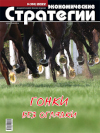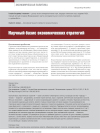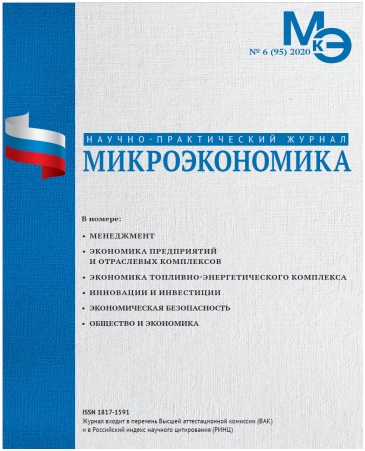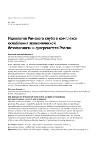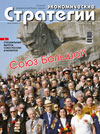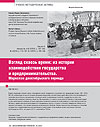The importance of investments in economic growth and increasing incomes of the population
DOI: 10.33917/mic-5.118.2024.78-86
The relevance of attracting investments into the country’s economy in order to achieve economic growth, ensure its stability and thereby increase the population’s income is analyzed. The dynamics of attracting investments into fixed capital in the country as a whole and for individual types of economic activity are considered. The share of investments in GDP and the level of investment efficiency are estimated. The relationship between increasing domestic and foreign investment attractiveness, increasing the volume of investments and increasing the population’s income is determined.
The methods of statistical, comparison, grouping, analysis and synthesis, and economic analysis are used in the coverage of this article. A comparative analysis of the data was carried out, on the basis of which an attempt was made to more accurately highlight the role of investments in economic growth and ensuring the well-being of the population.
References:
1. Makasheva N. Does J.M. Keynes Help Study the Russian Economy? Voprosy ekonomiki. 2010;12:131–140.
2. Massé P. Criteria and Methods for Optimal Determination of Capital Investments / Translated from French. Moscow: Statistika, 1971. 160 p.
3. McConnell K.R., Brew S.L. Economics: Principles, Problems, and Policy. In 2 volumes: Translated from English. 11th ed. Vol. 1. Moscow: Respublika, 1992. 399 p.
4. Dolan E.J., Lindsay D.E. Microeconomics. St. Petersburg, 1994. 448 p.
5. Abdukarimov B.A. Korkhona iktisodiyoti (darslik). T.: Fan, 2005. 241 p.
6. Karimov N. The mechanism of investment integration and the development of the mechanism of investment. T.: Fan and technology, 2007. 240 p.
7. Nodirkhanov U.S. Foreign investment in Uzbekistan: experience, problems, growth prospects. T.: Fan and technology, 2011. 184 p.
8. Egamberdiev F.T., Daniyarova F.B., Kholmatjonov F.M. The importance of investment in the development of the economy. Economy and Finance 2017;10:68–74.
9. Mihaela Peres, Waqar Ameer & Helian Xu. The impact of institutional quality on foreign direct investment inflows: evidence for developed and developing countries, Economic Research-Ekonomska Istraživanja. 2018;31(1):626–644.




